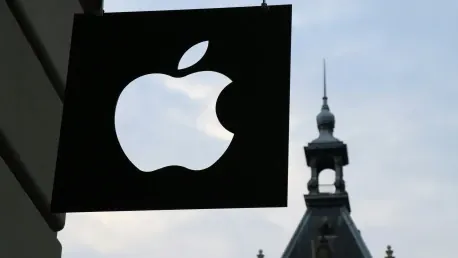A federal judge in New York ruled on Monday in favor of Apple in a case involving the unlocking of a seized iPhone. This decision is an important victory for the tech giants for two reasons: the locked iPhone 5s (iOS 7) in the New York case can be unlocked, as opposed to the iPhone 5C (iOS 9) in the San Bernardino case – which makes the ruling all the more significant; there’s also the judge’s written ruling, which indicates serious shortages in the applicability of the All Writs Act (AWA) for all similar cases.
The New York case started earlier than the one of the shooters in San Bernardino, dating back to October 2015. The drug dealer involved has pleaded guilty. Though the ruling from either case doesn’t influence directly the other, there are some similarities that stand out, the most important one – Apple is fighting the same 18th Century law, the All Writs Act. To quote the technical definition on AWA: The All Writs Act is a United States federal statute, codified at 28 U.S.C. § 1651, which authorizes the United States federal courts to “issue all writs necessary or appropriate in aid of their respective jurisdictions and agreeable to the usages and principles of law.”
Victory on the Eastern front
US Magistrate Judge James Orenstein, the judge that ruled in favor of Apple in the New York case, elaborated in his Monday ruling that the government has failed to establish either that the AWA permits the relief it seeks or that, even if such an order is authorized, the discretionary factors I must consider weigh in favor of granting the motion.
Considering the ongoing encryption war sparked by the court order that required the tech company to provide technical assistance in the San Bernardino shooting case, the New York ruling can be considered as a victory on both fronts. Apple’s CEO Tim Cook refused to comply with the federal court order, not only because he would put at risk customer data, but also because this would set a precedent that might affect other companies as well in the future.
In the “reasonable technical assistance” Apple must provide to the FBI, the company has to bypass or disable the auto-erase function, and enable the FBI to submit passcodes to the device without additional delay between passcodes attempts. Tim Cook explained Apple’s refusal through an open letter and an interview on national television. Since there is no other viable way to safely unlock the phone (yet), Cook said that his team would have to create a backdoor – which in return would threaten millions of customers if it, or any details about its creation would fall into the wrong hands. Government agencies won’t be able to guarantee the safety of the universal iPhone key, and nothing can reassure us that this will be a one-time situation. Privacy scandals intensified encryption efforts in the first place.
Similar views
Apple rallied support from important names in the tech industry, but apparently, the tech giants managed to get legal support as well, since Judge James Orenstein’s ruling had similar views to those expressed by Tim Cook.
“As constantly increasing computer power is continually squeezed into even smaller storage devices, the category of customer products containing licensed software will continue to grow,” wrote the judge in his ruling. “In a world in which so many devices, not just smartphones, will be connected to the Internet of Things, the government’s theory that a licensing agreement allows it to compel the manufacturers of such products to help it surveil the products’ users will result in a virtually limitless expansion of the government’s legal authority to surreptitiously intrude on personal privacy.”
The federal judge also agreed that a company shouldn’t be forced to create a new “product”, especially if it would put customer data at risk. However, the more important aspects of the ruling examine the applicability of the All Writs Act – the government agencies’ ace up the sleeve. AWA is used to force companies to aid investigations but given that this law is over 200 years old, perhaps it’s time to assume that no one could have predicted what repercussions it will have.
“In short, whatever else the AWA’s “urges and principles” clause may be intended to accomplish, it cannot be a means for the executive branch to achieve a legislative goal that Congress has considered and rejected,” wrote Judge Orenstein. “But because such rejection can take many forms, only one of which (and arguably the least likely in most circumstances) is outright prohibition, the government’s argument here is manifestly irreconcilable with the statue.”
Apple will testify before Congress tomorrow, and though the New York case victory doesn’t have any legal bearing on the outcome of the California case, US Magistrate Judge James Orenstein’s ruling raised important questions in the matter. This might very well be Apple’s best possible start in the encryption battle.









